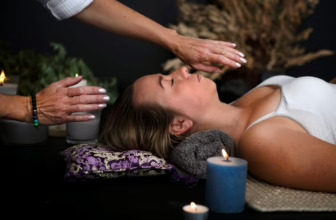When crises hit, many families consider boot camps for teenagers in Phoenix, but drill-based programs rarely address the anxiety, depression, trauma, or family stress driving the behavior. Evidence-based alternatives center on therapy, skill-building, school coordination, and family involvement—an approach that leads to steadier progress and fewer setbacks.
These Phoenix-area programs provide structure without relying on harsh tactics, using CBT/DBT skills, family sessions, and practical coping tools teens can use at home and in class. The result is real growth: stronger accountability, healthier relationships, and a clear aftercare plan that keeps recovery moving.
Alternatives provide a nurturing environment, enabling emotional growth
Programs that focus on emotional support give teens space to feel understood and valued. Unlike boot camps that rely on strict discipline, these alternatives emphasize trust, communication, and personal growth.
Therapeutic schools, residential treatment, and wilderness therapy often combine counseling with structured routines. This balance helps teens build coping skills while addressing the root causes of their struggles.
A nurturing setting encourages self-esteem and resilience. When teens feel safe, they are more willing to express emotions and work through challenges in healthy ways.
Family involvement also plays an important role. Many programs guide parents in creating supportive home environments, which strengthen recovery and promote long-term stability.
These approaches prioritize lasting change by teaching practical skills and encouraging healthy relationships. Teens learn to manage stress, improve decision-making, and develop confidence in their ability to move forward.
Programs focus on accountability and skill-building over strict discipline
Many recovery programs in Phoenix take a different approach than traditional boot camps. Instead of relying on harsh discipline, they emphasize personal responsibility and practical skills that help teens manage daily challenges.
These programs often include therapy, group sessions, and activities that encourage teens to reflect on their choices. By practicing accountability in a supportive setting, they learn how their actions affect themselves and others.
Skill-building is also a central focus. Teens work on communication, problem-solving, and coping strategies that prepare them for real-life situations. These tools give them healthier ways to respond to stress and conflict.
Unlike the rigid structure of boot camps, this method allows for flexibility and growth. Teens are encouraged to develop self-control through guidance and practice rather than fear or punishment.
Residential treatment options offer continuous care and stability
Residential treatment programs give teens a structured setting where they can receive ongoing support. Unlike short-term or high-intensity approaches, these programs focus on steady progress through consistent routines and professional guidance.
In a residential setting, teens live on-site and have access to therapy, education, and daily supervision. This environment helps reduce outside distractions and provides a safe space to work on behavior, emotional health, and coping skills.
These programs often include individual counseling, group therapy, and family involvement. By addressing both mental health and behavioral needs, residential care can create a more balanced and sustainable path forward.
Residential treatment also allows staff to monitor progress closely. This continuous oversight helps identify challenges early and adjust treatment plans as needed, giving teens a better chance at long-term improvement.
Therapeutic approaches reduce emotional strain on families compared to boot camps
Families often feel drained when a teen struggles with behavior or emotional challenges. Boot camps in Phoenix usually focus on strict discipline, which can create tension between parents and their child. This approach may leave families feeling more distant instead of supported.
Therapeutic programs take a different path. They combine structure with counseling, helping teens work through underlying issues such as anxiety, depression, or defiance. Parents benefit because they see progress tied to healing, not just control.
These programs also involve families in the process. Counselors often guide parents on communication and conflict resolution, which reduces stress at home. This shared effort helps families rebuild trust and stability.
Unlike boot camps that rely on external authority, therapeutic settings encourage lasting personal growth. Teens learn coping skills they can use outside the program, easing pressure on parents to manage every conflict. Families often report less strain when support is consistent and focused on long-term change.
Conclusion
Boot camp alternatives in Phoenix offer structured care that also addresses emotional and psychological needs. These programs focus on long-term growth rather than short-term compliance.
Families often find that therapeutic settings, residential treatment, and family-centered approaches create more lasting change. These options encourage accountability while also supporting mental health and education.
By choosing alternatives, parents provide teens with access to resources that foster healthier coping skills and stronger relationships. This balanced approach helps adolescents move forward with greater stability and confidence.
Follow me down the rabbit hole!
I'm Alice and I live with a dizzying assortment of invisible disabilities, including ADHD and fibromyalgia. I write to raise awareness and end the stigma surrounding mental and chronic illnesses of all kinds.








